Gabon, often overshadowed by its more famous neighbors, is a hidden gem in Central Africa that boasts incredible biodiversity, lush rainforests, and a rich cultural heritage. Nestled along the Atlantic coast, Gabon is renowned for its national parks, pristine landscapes, and vibrant wildlife.
From the majestic Okavango Delta to the vibrant capital city of Libreville, Gabon offers a unique blend of natural beauty and cultural experiences that are sure to captivate any traveler. As you explore this enchanting nation, you’ll discover the warm hospitality of its people, the richness of its traditions, and the awe-inspiring wonders of nature.
Table of Contents
Geography
Gabon is located on the west coast of Central Africa, bordered by the Atlantic Ocean to the west, Equatorial Guinea to the northwest, Cameroon to the north, and the Republic of the Congo to the east and south. Covering an area of approximately 267,668 square kilometers, Gabon is characterized by its diverse geography, which includes coastal plains, savannas, and dense rainforests.
The country is home to several major rivers, including the Ogooué River, which flows through the heart of Gabon and serves as a vital transportation route. The interior of Gabon is dominated by the vast Congo Basin rainforest, one of the world’s largest tropical rainforests, teeming with diverse wildlife and plant species. The country’s natural landscapes are punctuated by mountainous regions, including the Crystal Mountains, which offer breathtaking views and opportunities for hiking and exploration.
Gabon experiences a tropical climate, with two main seasons: the wet season from October to May and the dry season from June to September. The lush vegetation and abundant rainfall contribute to Gabon’s rich biodiversity, making it a haven for wildlife enthusiasts and nature lovers.
States of Gabon
Gabon is divided into 9 provinces, not states. Each province is further divided into departments. The provinces are:
| No. | Province | Capital |
|---|---|---|
| 1 | Estuaire | Libreville |
| 2 | Haut-Ogooué | Franceville |
| 3 | Moyen-Ogooué | Lambaréné |
| 4 | Ngounié | Mouila |
| 5 | Nyanga | Tchibanga |
| 6 | Ogooué-Ivindo | Makokou |
| 7 | Ogooué-Lolo | Koulamoutou |
| 8 | Ogooué-Maritime | Port-Gentil |
| 9 | Woleu-Ntem | Oyem |
History
Gabon has a rich and complex history that dates back thousands of years. The region was inhabited by various indigenous groups, including the Fang, Punu, and Nzebi, each with its distinct cultures and traditions. In the late 15th century, European explorers arrived on the coast, with the Portuguese being among the first to establish contact with local populations.
During the 19th century, Gabon became a French colony, which significantly influenced the country’s social, political, and economic landscape. The French established plantations and engaged in trade, leading to significant changes in the lives of the indigenous peoples. Gabon gained independence from France on August 16, 1960, and Léon Mba became the country’s first president.
Since independence, Gabon has experienced periods of political stability and challenges. In 1967, Omar Bongo Ondimba became president, ruling for over four decades and shaping the country’s political landscape. Under his leadership, Gabon enjoyed relative stability and economic growth, primarily driven by oil production. However, political power has remained concentrated in a small elite, leading to concerns about democratic governance and human rights.
In 2009, Ali Bongo Ondimba succeeded his father as president, continuing the Bongo family’s long-standing influence on Gabonese politics. The country has since faced political challenges, including allegations of electoral fraud and social unrest. Despite these issues, Gabon remains one of the more stable nations in Central Africa, with a commitment to sustainable development and environmental conservation.
Top Ten Must-Visit Destinations
1. Libreville
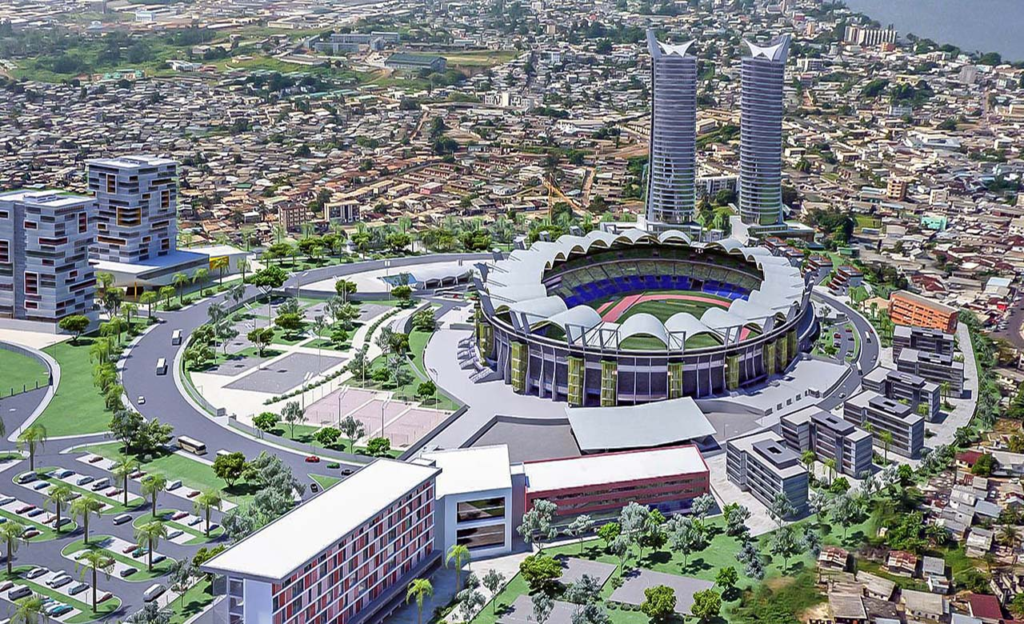
Libreville, the capital city of Gabon, is a vibrant and modern metropolis situated along the Atlantic coast. Visitors can explore the lively markets, dine at local restaurants, and stroll along the beachfront promenade. Key attractions include the St. Michael Cathedral, the National Museum of Arts and Traditions, and the Presidential Palace. The city’s blend of urban development and natural beauty makes it an essential starting point for exploring Gabon.
2. Loango National Park
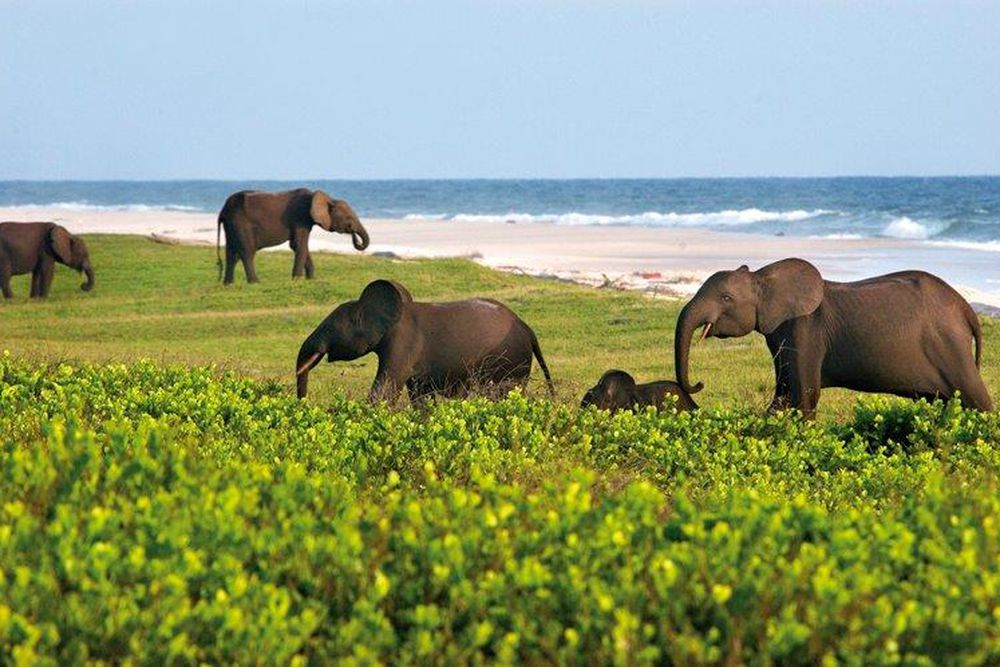
Loango National Park is a stunning protected area known for its diverse ecosystems, including coastal lagoons, mangroves, and dense forests. The park is famous for its rich wildlife, including elephants, gorillas, and a variety of bird species. Visitors can enjoy guided tours, wildlife watching, and pristine beaches, making it a must-visit destination for nature enthusiasts.
3. Ivindo National Park
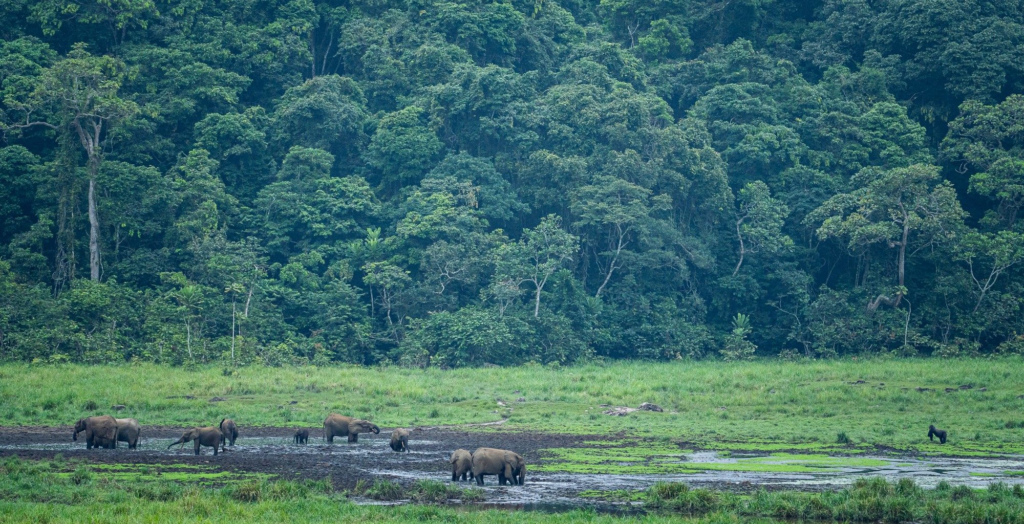
Ivindo National Park is home to the spectacular Kongou Falls and offers breathtaking landscapes filled with lush rainforests and diverse wildlife. The park is a UNESCO World Heritage Site and provides opportunities for trekking, birdwatching, and exploring the rich biodiversity of the region. The stunning waterfalls and pristine natural beauty make it a perfect destination for adventure seekers.
4. Akanda National Park
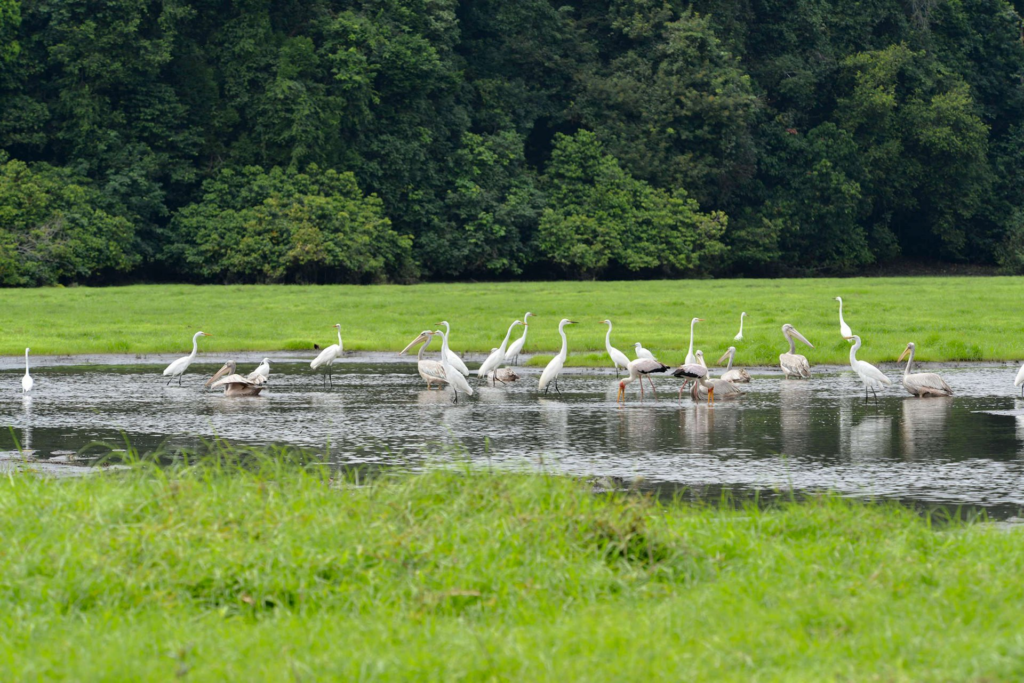
Akanda National Park is located on the coast and is known for its beautiful mangrove forests and rich marine life. The park is a haven for birdwatchers and nature lovers, with numerous species of birds, including migratory birds. Visitors can explore the park’s trails, enjoy boat rides, and experience the tranquility of Gabon’s coastal ecosystems.
5. Mikongo National Park

Mikongo National Park is a remote and less-visited gem that offers an authentic rainforest experience. The park is home to various primates, including western lowland gorillas and chimpanzees. Visitors can embark on guided treks to observe these incredible creatures in their natural habitat while exploring the dense rainforest.
6. Franceville

Franceville is a charming city located in southeastern Gabon, known for its lush surroundings and cultural attractions. The city is a gateway to the beautiful surrounding landscapes, including the scenic riverbanks of the Ngounié River. Visitors can explore local markets, enjoy traditional cuisine, and experience the vibrant culture of the region.
7.
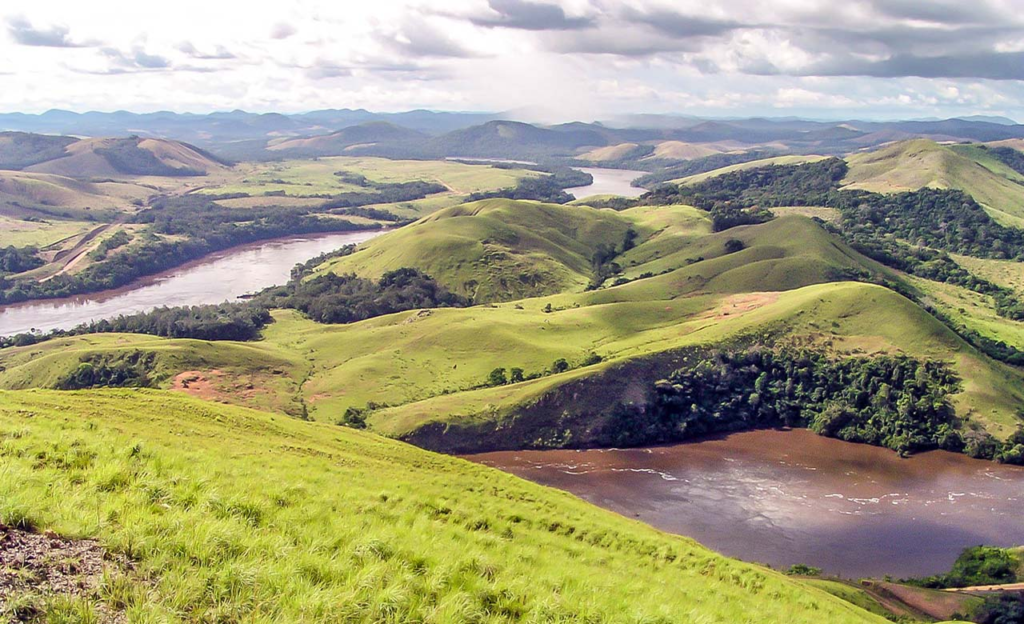
Lopé National Park is a UNESCO World Heritage Site that showcases the diverse ecosystems of Gabon, from savanna to rainforest. The park is home to various wildlife species, including elephants, buffalo, and numerous bird species. Visitors can enjoy guided safaris, hiking trails, and immersive experiences in the heart of Gabon’s wilderness.
8. Tchibanga

Tchibanga is known for its stunning landscapes and cultural significance. Located in the south of Gabon, the city is surrounded by lush forests and hills. Visitors can explore the nearby waterfalls, engage with local communities, and experience the rich traditions of the Tsogo people, known for their vibrant crafts and cultural heritage.
9. Mayumba National Park
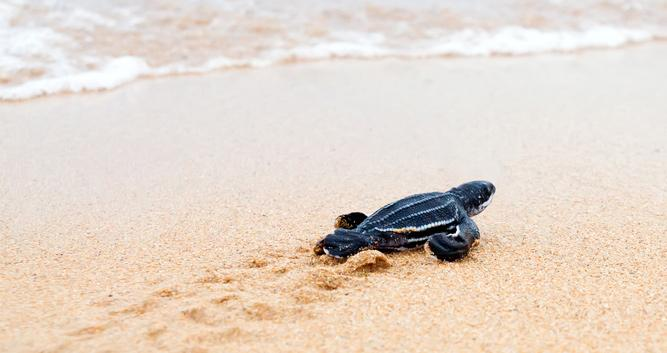
Mayumba National Park is a coastal park known for its beautiful beaches and rich marine biodiversity. The park is a nesting site for sea turtles, making it a significant area for conservation efforts. Visitors can relax on the pristine beaches, enjoy water sports, and explore the unique coastal ecosystems that thrive in this protected area.
10. Petit Loango National Park
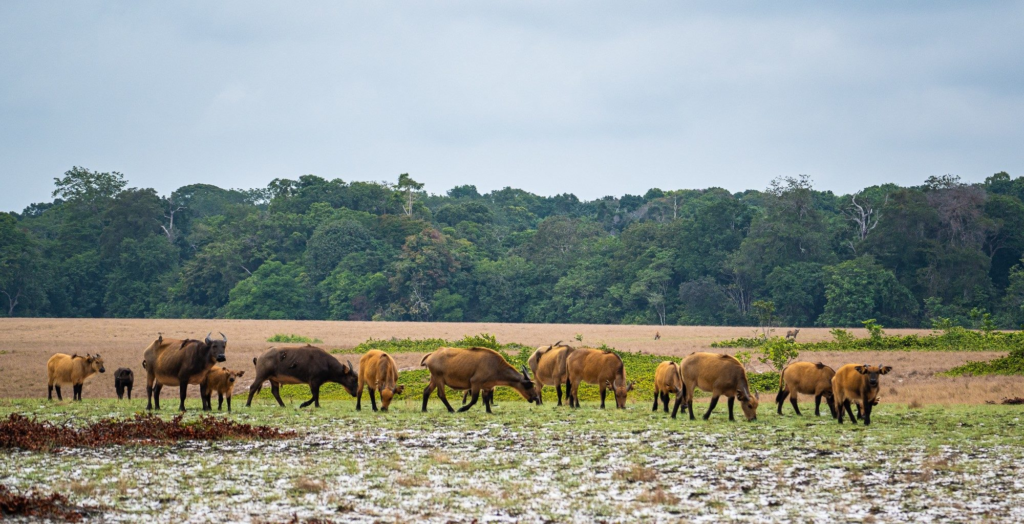
Petit Loango National Park is a smaller, yet equally stunning, coastal park known for its diverse wildlife and pristine landscapes. The park features sandy beaches, lagoons, and mangrove forests, making it a paradise for nature lovers. Visitors can explore the park on foot or by boat, taking in the beauty of Gabon’s coastal ecosystems.
Culture
The country boasts a rich and diverse cultural heritage influenced by its numerous ethnic groups, including the Fang, Punu, and Nzebi. Each group contributes to the country’s cultural tapestry through its unique traditions, languages, and customs. French is the official language, but many indigenous languages are spoken, reflecting Gabon’s linguistic diversity.
Traditional music and dance are integral to Gabon’s cultural identity. The country is known for its vibrant musical styles, including Ngoma, a traditional drumming style, and Mvet, a storytelling tradition accompanied by music. Festivals often feature lively performances, showcasing the rich artistic expressions of Gabonese culture.
Gabon is also known for its traditional crafts, including wood carving, basket weaving, and textile production. Artisans create intricate masks and sculptures that reflect the spiritual and cultural beliefs of the various ethnic groups. These crafts are often showcased in local markets, providing visitors with an opportunity to appreciate and purchase authentic Gabonese art.
Festivals
The country celebrates a variety of festivals throughout the year, reflecting its rich cultural heritage and traditions. One of the most significant festivals is the Festival of the Arts, held in Libreville, which showcases traditional music, dance, and crafts from various ethnic groups. This vibrant event attracts locals and tourists alike, providing a platform for cultural exchange and appreciation.
Another important celebration is the Fête de l’Indépendance, commemorating Gabon’s independence from France. This national holiday is marked by parades, cultural performances, and various festivities across the country, allowing Gabonese people to celebrate their history and heritage.
The Rites of Passage ceremonies are also essential in Gabonese culture, particularly among the Fang people. These rituals mark significant transitions in life, such as birth, puberty, marriage, and death, and are often accompanied by traditional music, dance, and communal feasting.
Economy
The country has a mixed economy that relies heavily on natural resources, particularly oil and timber. Oil production is the primary driver of the country’s economy, contributing significantly to government revenue and exports. Gabon is one of Africa’s top oil producers, and its oil reserves have played a crucial role in shaping the nation’s economic landscape.
Timber is another important sector in Gabon’s economy, with vast rainforests providing valuable hardwoods for export. The government has implemented sustainable forestry practices to ensure the preservation of its rich natural resources while promoting economic growth.
In recent years, The country has made efforts to diversify its economy by promoting sectors such as agriculture, tourism, and renewable energy. The government has launched initiatives to attract foreign investment and support local entrepreneurship, aiming to create a more resilient and sustainable economy.
Cuisine
Gabonese cuisine is diverse and flavorful, influenced by the country’s various ethnic groups and natural resources. The diet is primarily based on staples such as cassava, yams, and rice, often served with sauces made from vegetables, fish, or meat. Poulet Nyama, grilled chicken marinated in a spicy sauce, is a popular dish, as well as Fufu, a starchy side made from cassava or yams.
Seafood is also a significant part of Gabonese cuisine, with fresh fish and shellfish being widely consumed. Local specialties include Mbongo Tchobi, a fish stew flavored with spices, and Saka Saka, a dish made from cassava leaves cooked with palm oil and peanuts.
Traditional meals are often enjoyed communally, reflecting the Gabonese culture of sharing and togetherness. Food plays a central role in social gatherings and celebrations, with families and communities coming together to enjoy delicious dishes and celebrate their heritage.
Top Eight Most Famous Food

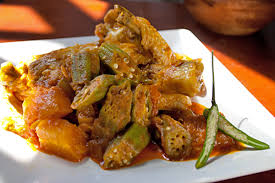
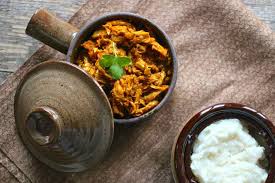
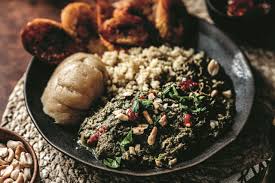


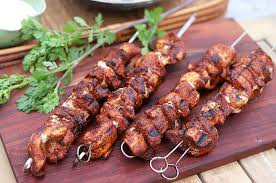
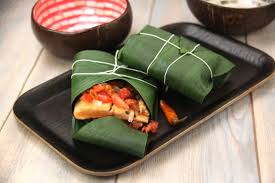
Interesting Facts
- Gabon is one of the most biodiverse countries in the world, with over 80% of its land covered by rainforest.
- The country has 13 national parks, protecting a significant portion of its unique ecosystems.
- Gabon is home to the largest population of forest elephants in Africa.
- The Okavango Delta, located in Gabon, is a UNESCO World Heritage Site known for its incredible biodiversity.
- Gabon is one of the few African countries with a significant oil reserve, making it an important player in the energy sector.
- The country has a rich cultural heritage, with over 40 different ethnic groups and languages.
- Gabon is known for its traditional music, particularly the Ngoma drum.
- The country celebrates its independence on August 16th each year.
- Gabon’s rainforests are home to numerous endangered species, including the western lowland gorilla and the African grey parrot.
- The capital city, Libreville, is named after the French word for “free,” reflecting its history as a settlement for freed slaves.
Conclusion
Gabon is a captivating destination that offers a unique blend of natural beauty, rich culture, and diverse wildlife. From its stunning national parks and pristine landscapes to its vibrant cities and warm hospitality, The country invites travelers to explore its hidden treasures. As you embark on a journey through this remarkable country, you’ll discover the essence of Central Africa and create lasting memories in the heart of Gabon.

